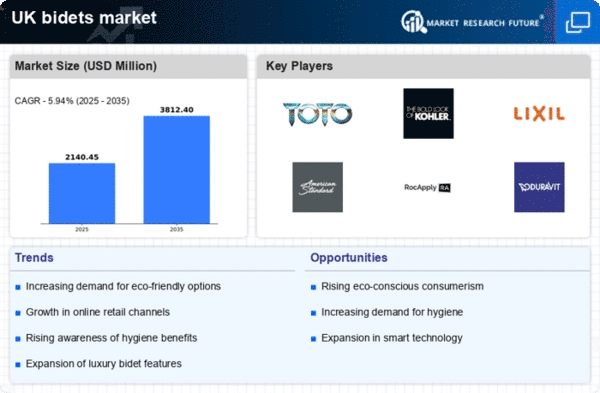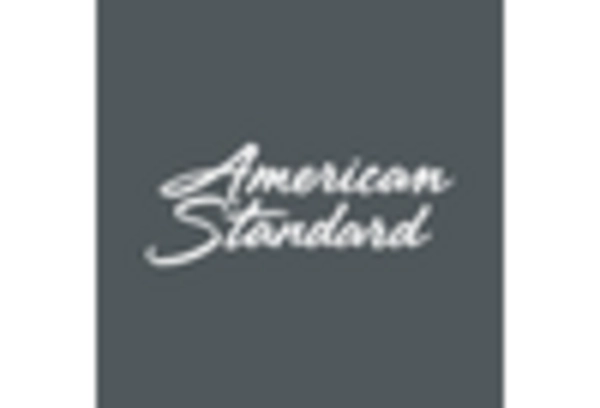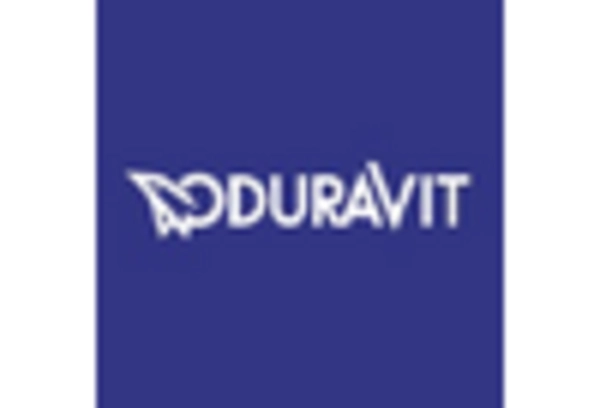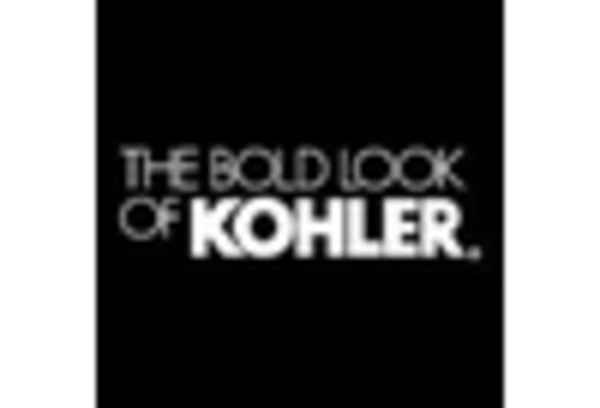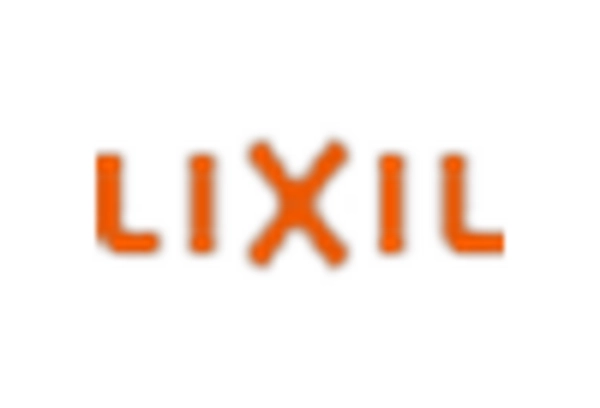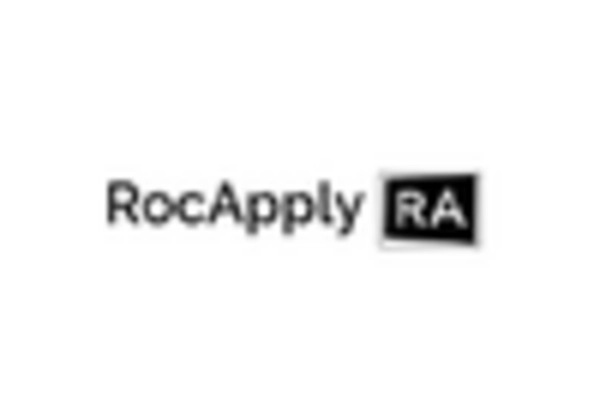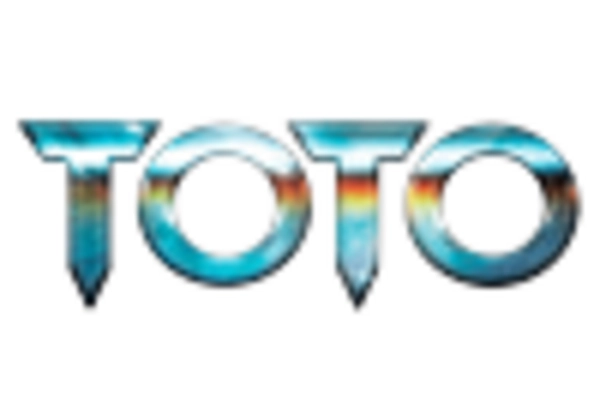Rising Disposable Income
The bidets market in the UK is also being positively impacted by rising disposable incomes among consumers. As financial conditions improve, households are more willing to invest in premium bathroom fixtures, including bidets. This trend is evident in the increasing sales figures, with the market projected to grow by 10% annually over the next five years. The bidets market is likely to see a surge in demand for high-end models that offer luxury features, appealing to consumers who prioritize quality and comfort. This shift towards premium products indicates a broader trend of consumers seeking to enhance their living spaces, thereby providing a significant opportunity for manufacturers to cater to this evolving market.
Government Initiatives and Regulations
Government initiatives aimed at promoting sustainable practices and improving public health are influencing the bidets market in the UK. Recent regulations encouraging water-saving technologies have led to increased interest in bidets, which typically use less water than traditional toilet systems. The bidets market is likely to benefit from these initiatives, as consumers become more aware of the environmental impact of their choices. Furthermore, public health campaigns emphasizing hygiene and sanitation are driving consumers towards bidets as a more hygienic alternative. The potential for government incentives to support the adoption of bidets could further stimulate market growth, making it an area of interest for both consumers and manufacturers alike.
Influence of Health and Wellness Trends
Health and wellness trends are significantly shaping the bidets market in the UK. As consumers become more health-conscious, there is a growing recognition of the importance of personal hygiene in overall well-being. Bidets are increasingly viewed as a hygienic alternative to traditional toilet paper, which aligns with the rising focus on health. The bidets market is responding to this trend by promoting the health benefits associated with bidet use, such as reduced risk of infections and improved skin health. This alignment with health trends is likely to attract a broader consumer base, particularly among those who prioritize wellness in their purchasing decisions. The potential for growth in this segment suggests a promising outlook for the bidets market.
Increased Demand for Comfort and Convenience
The bidets market in the UK is experiencing a notable shift towards products that enhance comfort and convenience in personal hygiene. Consumers are increasingly seeking solutions that provide a more pleasant bathroom experience. This trend is reflected in the growing sales of bidets, which have seen an increase of approximately 15% in the last year alone. The bidets market is adapting to this demand by introducing models with advanced features such as heated seats and adjustable water pressure. As more households recognize the benefits of bidets, including improved cleanliness and reduced toilet paper usage, the market is likely to expand further. This shift towards comfort-oriented products suggests a promising future for the bidets market, as manufacturers innovate to meet evolving consumer preferences.
Technological Integration and Smart Features
The integration of technology into bathroom fixtures is transforming the bidets market in the UK. Consumers are increasingly drawn to bidets equipped with smart features, such as remote controls, customizable settings, and self-cleaning capabilities. This technological advancement is appealing to a tech-savvy demographic that values innovation in everyday products. The bidets market is witnessing a rise in demand for these high-tech models, which are projected to account for a significant share of the market in the coming years. As manufacturers continue to innovate and incorporate advanced technology into their products, the potential for market expansion appears substantial. This trend indicates a shift towards a more modern and connected bathroom experience, further enhancing the appeal of bidets.


